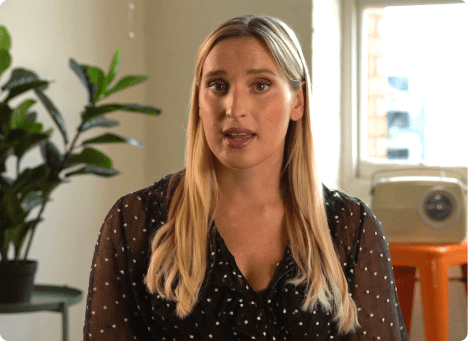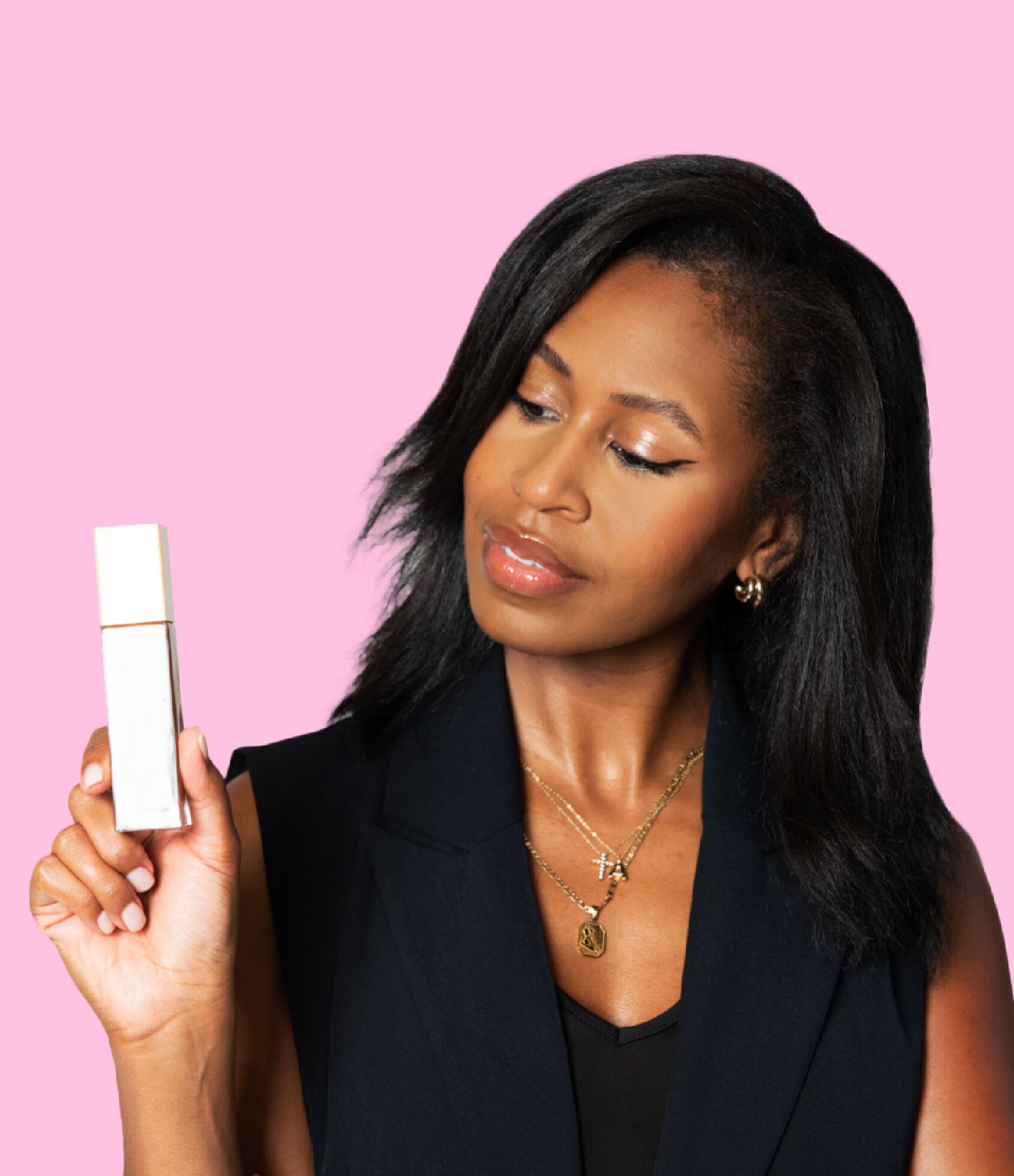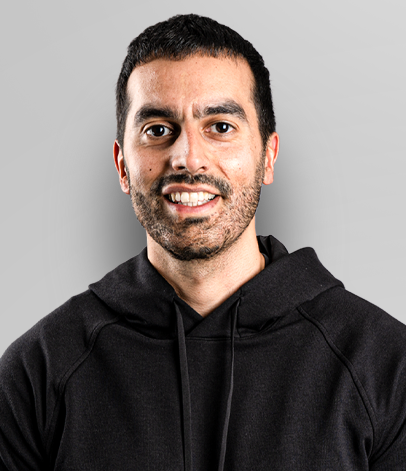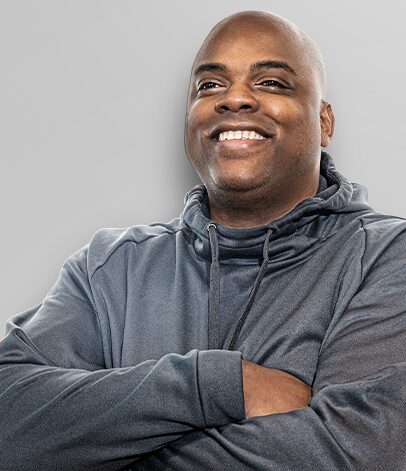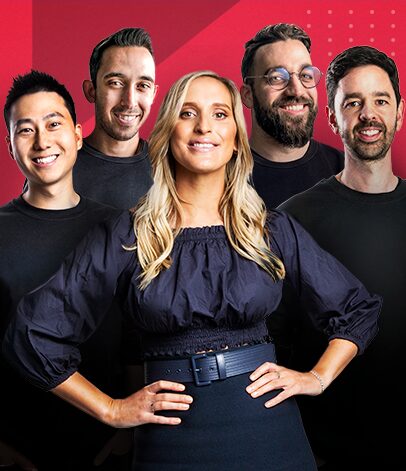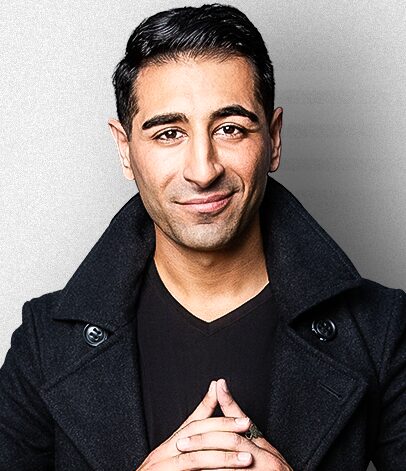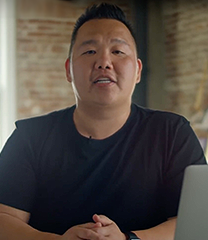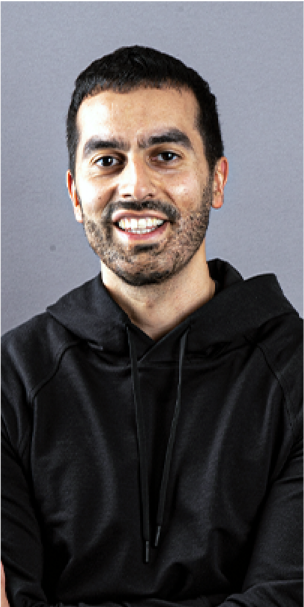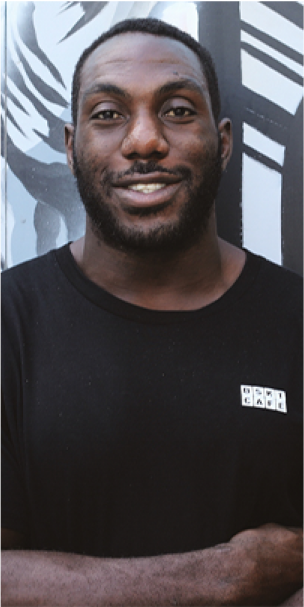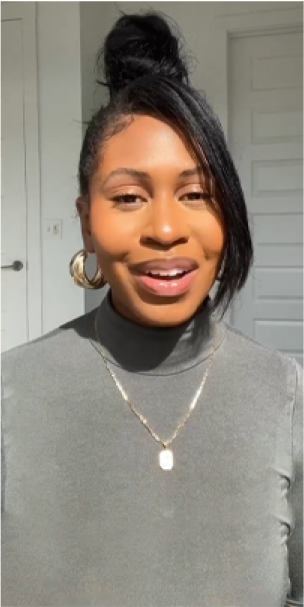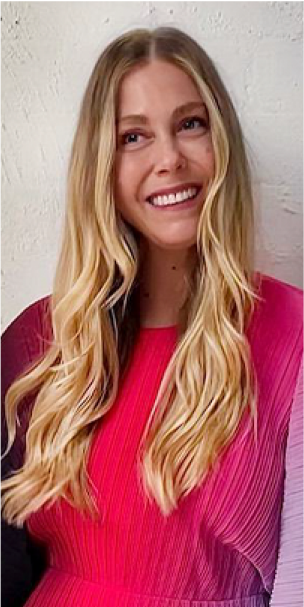
UNLOCK YOUR DREAM ECOMMERCE BUSINESS – TRY NOW – 14 DAYS FOR $1
The #1 Learning Platform For Ecomm Founders. Access Step-By-Step Courses from Industry Leaders, Weekly Live Events, a Thriving Community of Founders + SO much more.
FEATURED IN






Want to build your online store with confidence?
In a world full of unreliable solutions, foundr+ provides you with focus. We’ll help you find clarity, whether you’re just starting, or trying to grow. We do this by providing you with the most reliable, up-to-date information, tools and resources from industry leaders.
Maybe you’re still trying to find your idea, or perhaps you’re stuck on marketing your brand. Whatever the challenge is, our 360° approach will guide you through community events and comprehensive courses to keep you moving.
Unlock your unique learning pathway and start growing with foundr+

Welcome to foundr+
Your ecommerce success starts here. When you become a foundr+ member, you get a personalized learning journey to guide you through your new events, courses and experiences. We’re bringing you today’s leading ecomm minds to help you tackle each obstacle. Learn their mistakes, plug their shortcuts straight into your business and build the ecommerce brand of your dreams.
Learn from the BEST in the industry
What’s in your membership
01
1000+ Lessons for Whatever Stage You’re At
Industry-leading, comprehensive courses that are entirely practical. All action, built for purpose. Master… Ideation | Product Development | Marketing | Branding | So much more…

02
Transformational Live Workshops
Each week, learn the most up-to-date methods on the topics YOU care about from experts in the field. Recorded live in the founder studio, direct to wherever you are.

03
24/7 Community
Building a business can be lonely. Access your private community, where you can connect, share and learn from people just like you, all around the world. Who knows, you might even meet your next co-founder…
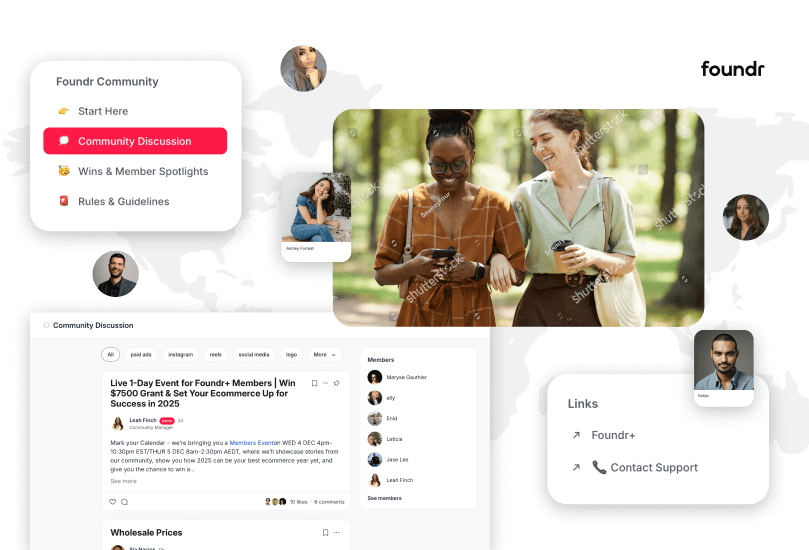
04
Unique Learning Pathway
Stuck on where to start, or how to move forward? Your unique learning pathway will discover your needs, and become your compass on the platform.
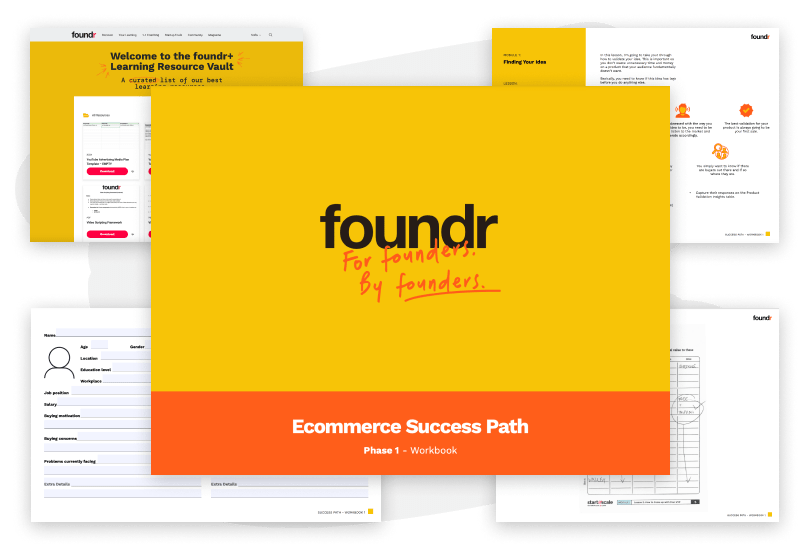
05
Gamechanging Plug & Play Tools
The best resources in the industry, straight in your hands. Get immediate access to the tools, templates and swipe files your instructors use to build THEIR businesses.
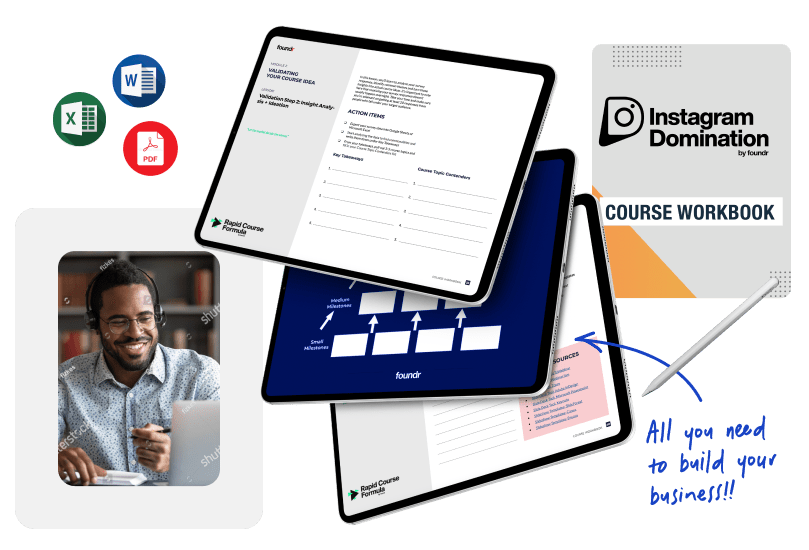
06
$250K in Startup Savings
Foundr startup tools to help you save up to $250,000 on the top 200+ software and services like Stripe, Canva, Slack and Quickbooks. In the last 12 months, our members have saved a total of $5 Million through this program.
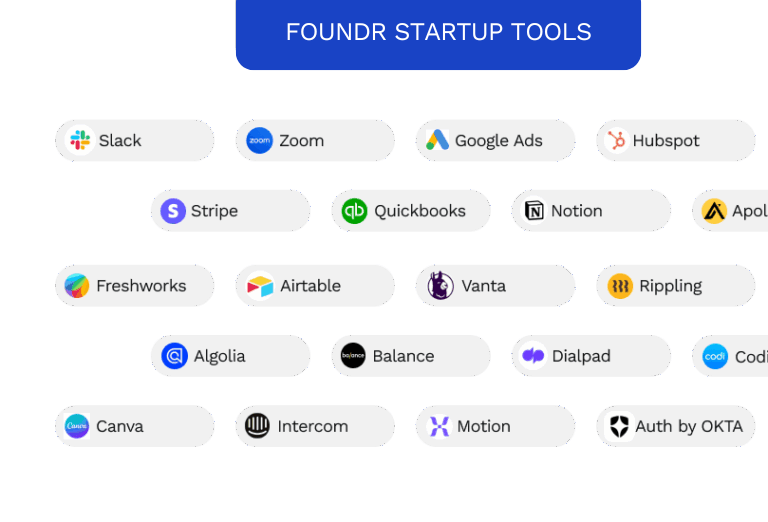
07
1-Click Membership Management
Cancel, pause, or upgrade your membership anytime right from your account. No emails, no live chat—just one simple click when you need it.
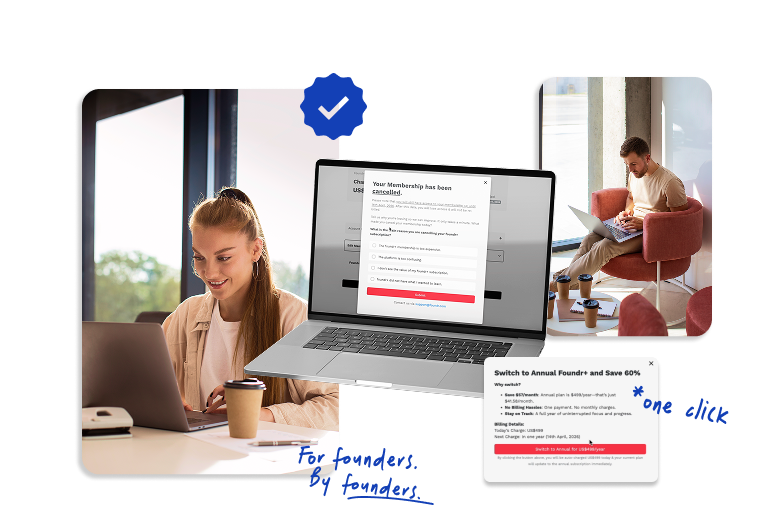
How your unique learning pathway works…
Get the accountability and guidance you need to skyrocket your store.
01
Set your course…
Each week, learn the most up-to-date methods on the topics YOU care about from experts in the field. Recorded live in the foundr studio, direct to wherever you are.
02
First steps…
Follow your personalized learning journey and discover a treasure trove of tools, templates and guides and engage with a supportive network of founders on a similar path.
03
Track your results
Join interactive mentorship sessions for the latest strategies from on-the-ground practitioners, and track your results to help accelerate your growth.
04
90-Day Evaluation
Get 1-1 guidance from our admissions team and leverage your 90-day review to reflect on key growth areas and challenges to take your ecommerce journey to even higher levels.
 Here’s what our students have to say
Here’s what our students have to say
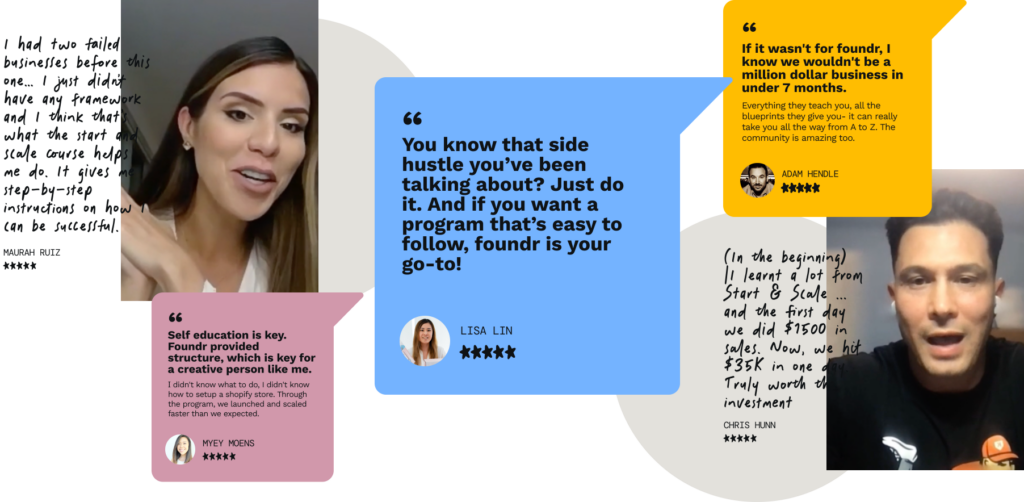
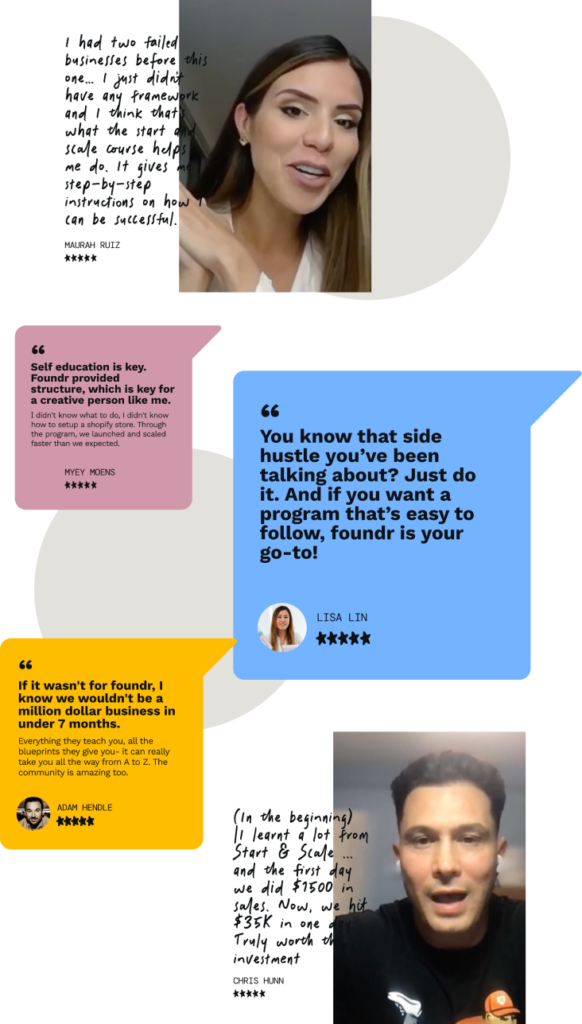
Transform your ecomm journey with foundr+
What’s included:
- Get instant access for just $1
- Access to 30+ World-Class Ecommerce Courses
- Weekly Live Mentorship Sessions with Experts
- Step-by-Step Learning Pathways for Every Stage of Business
- 1,000+ Actionable Lessons to Accelerate Your Growth
- $250,000+ in Savings For Software Tools
- A Community of 30,000+ Like-Minded Entrepreneurs
Total Value:
$1000+
UNLOCK 14 DAYS OF ACCESS FOR$1
MONTHLY MEMBERSHIP WILL REBILL AT $99/MONTH AFTER 14 DAY TRIAL. CANCEL AT ANYTIME





*VAT charges might apply as per the billing address

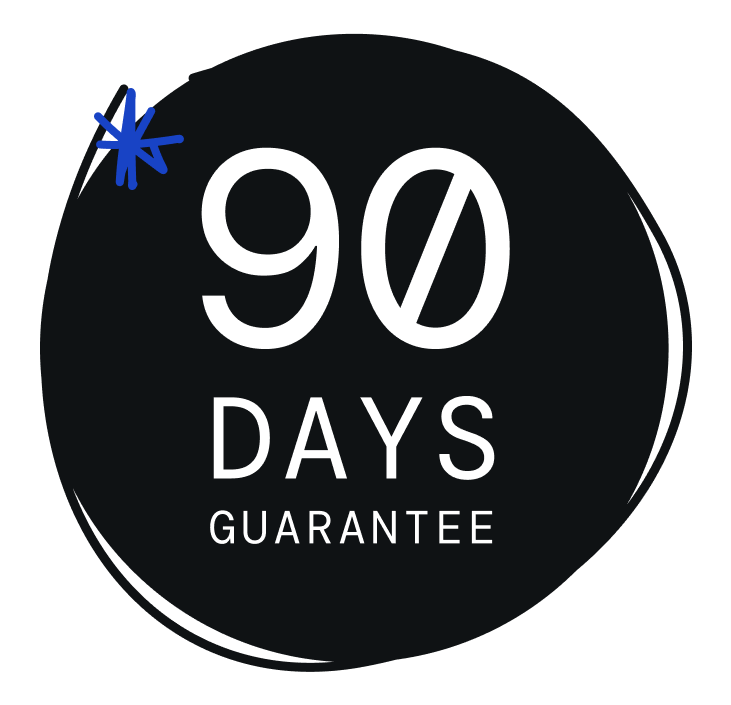
Our Success Guarantee.
We’re so confident Foundr+ can help you see tangible results that we guarantee it. If after actively learning and applying our methods and engaging with our community, you don’t see measurable results in 90 days, we offer a full refund of your investment.

ABOUT US
Foundr empowers millions by connecting them with the ideas of some of the most successful living entrepreneurs of our generation. Entrepreneurs like Richard Branson, Arianna Huffington, Mark Cuban, Tim Ferriss and many more. More recently, Foundr has been a dominating force in the world of Ecommerce, breaking down the strategies and frameworks of verified top entrepreneurs into actionable steps through our platform foundr+ so that anyone can start, build, and grow a successful ecommerce business.
Our goal is clear: to nurture the entrepreneurs of the next generation who will move society forward by building something new.
Students
Followers
Courses
Podcasts
10 years delivering on our promise
WHAT OUR STUDENTS HAVE TO SAY
We are trusted by thousands around the world
Legendary business builderslovefoundr

DAYMOND JOHN
FOUNDER OF FUBU
Aspiring entrepreneur looking to start your business? I highly recommend checking out Foundr—an invaluable resource to get your business off the ground.

Marie Forleo
Founder of MarieTV
If you are looking to learn about entrepreneurship, you have to check out Foundr. They have awesome interviews with some of the world’s leading business experts.

Gary Vaynerchuk
FOUNDER OF VaynerMedia
If you’re looking for a great resource to hear the stories of today’s successful entrepreneurs and learn what’s needed to be successful yourself, Foundr Magazine is where you should be allocating your time.
Frequently Asked Questions
What is Foundr+?
Foundr+ is an exclusive online platform designed to provide entrepreneurial education, connecting you with actionable insights and strategies from some of the world’s most successful entrepreneurs.
What if I don’t have enough time to commit to the courses?
Foundr+ is designed to accommodate busy schedules, allowing you to learn at your own pace. Even if you have just a few minutes a day, you can make meaningful progress. Our content is structured to deliver impactful insights efficiently, ensuring you can grow your business even with limited time.
Are there too many courses? How can I progress quickly?
While Foundr+ offers a wide range of courses, our personalized learning pathways help you focus on what’s most relevant to your goals, ensuring you can progress quickly and effectively without feeling overwhelmed.
What sets Foundr+ apart from other learning platforms?
Foundr+ distinguishes itself by providing real-world, actionable content taught by successful entrepreneurs, not just theorists. Our focus on practicality, coupled with access to an engaged community and ongoing support, offers a unique, result-driven learning environment.
Will I receive one-on-one support?
Yes we do offer 24×5 real-human support as well as extensive community and team support while our weekly personalized mentorship is designed to address your specific challenges, providing targeted guidance to ensure your success.
What if I can’t afford the membership?
Foundr+ aims to be accessible, offering significant value at a competitive price. If affordability is a concern, consider the potential ROI of effectively applying our strategies to your business. Investing in your growth can yield substantial returns.
Can you guarantee my success?
While Foundr+ provides all the tools, knowledge, and support you need to succeed, your success ultimately depends on your application of what you learn. We offer a robust foundation, but your dedication and effort will determine your results. That being said, we guarantee you’ll see measurable results within 90 days of joining. If you don’t, you can get your investment back so it’s completely risk-free for you.
What if I’m starting from scratch with no business idea?
If you’re beginning without a specific business in mind, Foundr+ is the perfect starting point. We guide you through exploring various business models, helping you identify one that aligns with your interests and goals. Whether you’re intrigued by e-commerce, digital agencies, or any other domain, we provide the insights and tools you need to make an informed decision and start building a business you’re passionate about.
Should I quit my job to start a business?
There’s no need to rush into leaving your job. We recommend maintaining your current employment while you start your business venture on the side. This approach reduces financial stress, allowing you to grow your new business with the security of a steady income. Many of our instructors successfully juggled full-time jobs while launching their businesses, proving it’s possible to start small and scale responsibly.
Can Foundr+ help me grow my existing e-commerce business?
Absolutely! Inside Foundr+, you’ll find specialized programs crafted by renowned e-commerce experts, covering essential topics like product selection, influencer partnerships, Amazon selling, and much more. Our resources are designed to propel any e-commerce business, regardless of size, toward significant growth milestones.
What differentiates Foundr+ from other memberships?
Foundr+ stands out by offering exclusive access to strategies and lessons from world-class entrepreneurs. Unlike platforms filled with generic advice, our content is practical, up-to-date, and proven, focusing on real-world applications to drive your business forward.
Will I receive new content regularly?
Yes, your membership includes access to all new courses we release from time to time as well as weekly live mentorship sessions, ensuring you’re always equipped with the latest strategies and insights in the fast-evolving ecommerce landscape.
I have unfinished courses. Should I complete those before starting with Foundr+?
Your entrepreneurial education doesn’t have to be linear. With Foundr+, you’re encouraged to navigate courses that align with your immediate needs, creating a personalized learning experience that’s most beneficial for your business at any given time.
How quickly can I access the courses after joining?
Once you join Foundr+, you’ll receive instant access to our course catalog and community, enabling you to dive into the content and start learning right away.
How are the live calls structured?
Each week, you’ll have the opportunity to join a live call on a relevant topic, available only to Foundr+ members. These sessions provide direct interaction with experts and fellow entrepreneurs, enriching your learning experience.
How do I cancel or pause my Foundr+ membership?
You can cancel or pause your membership anytime—no need to email support. Just log in, click your name at the top, and choose “View My Membership Details.” From there, you can cancel, pause, or upgrade with just one click. You’ll still have access until the end of your paid period.
What happens to my course access if I cancel Foundr+?
If you decide to cancel, you’ll retain access to any courses you purchased individually before joining Foundr+. However, you will lose access to the exclusive Foundr+ content that was part of your membership.
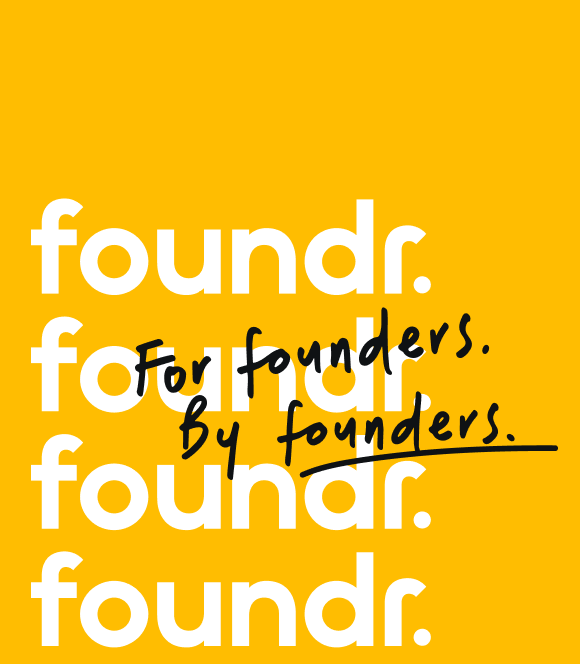
We make the best effort to accurately represent the services and/or products presented on this website. Statements or examples of actual earnings on this website that are attributed to a specified individual or business are true and correct to the best of our knowledge. However, these statements or examples should not be regarded as promises or guarantees of earnings or income. Earnings and income potential are affected by a number of factors over which we have no control, including but not limited to your financial condition, experiences, skills, level of effort, education, and changes within the market. Operating an online business entails risks, you should perform your own due diligence regarding your evaluation of any services and/or products presented on this website. For the foregoing reasons, you agree that we are not responsible for any decision you may make regarding any information presented on this website or any of the services and/or products presented on this website.
Connect:
Foundr ∙ Terms & Conditions ∙ Privacy Policy
© 2025 Foundr Magazine

